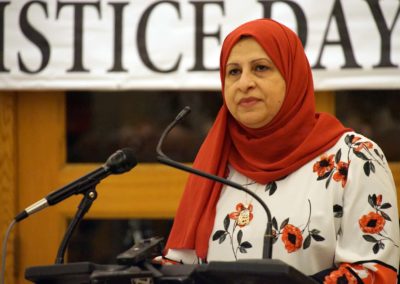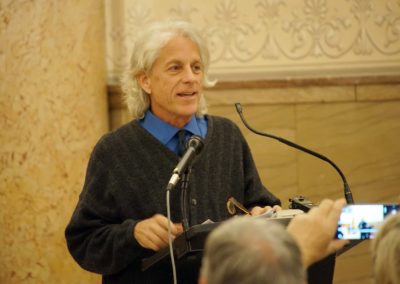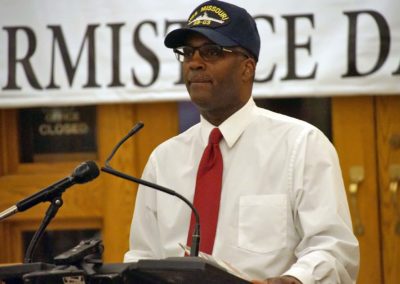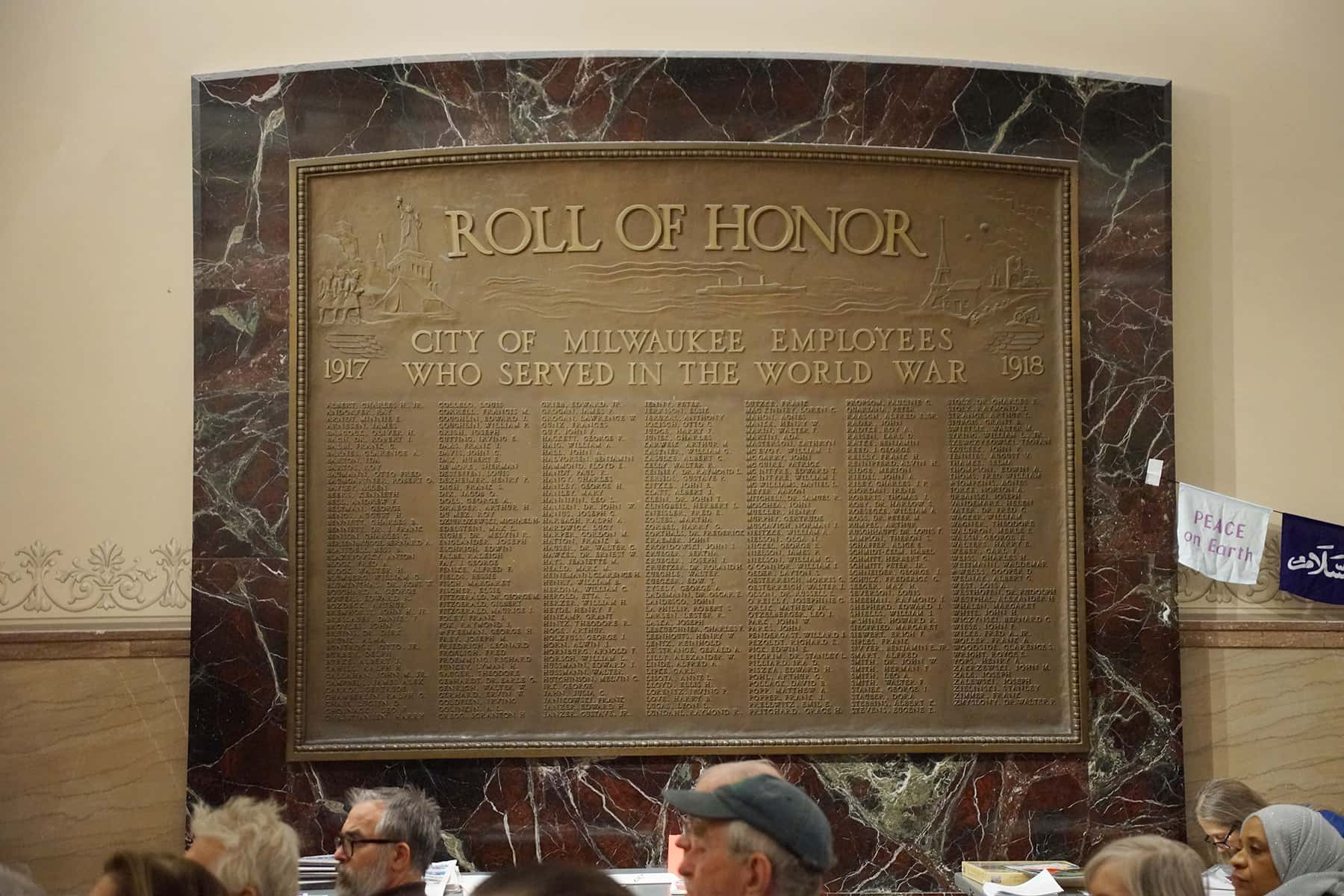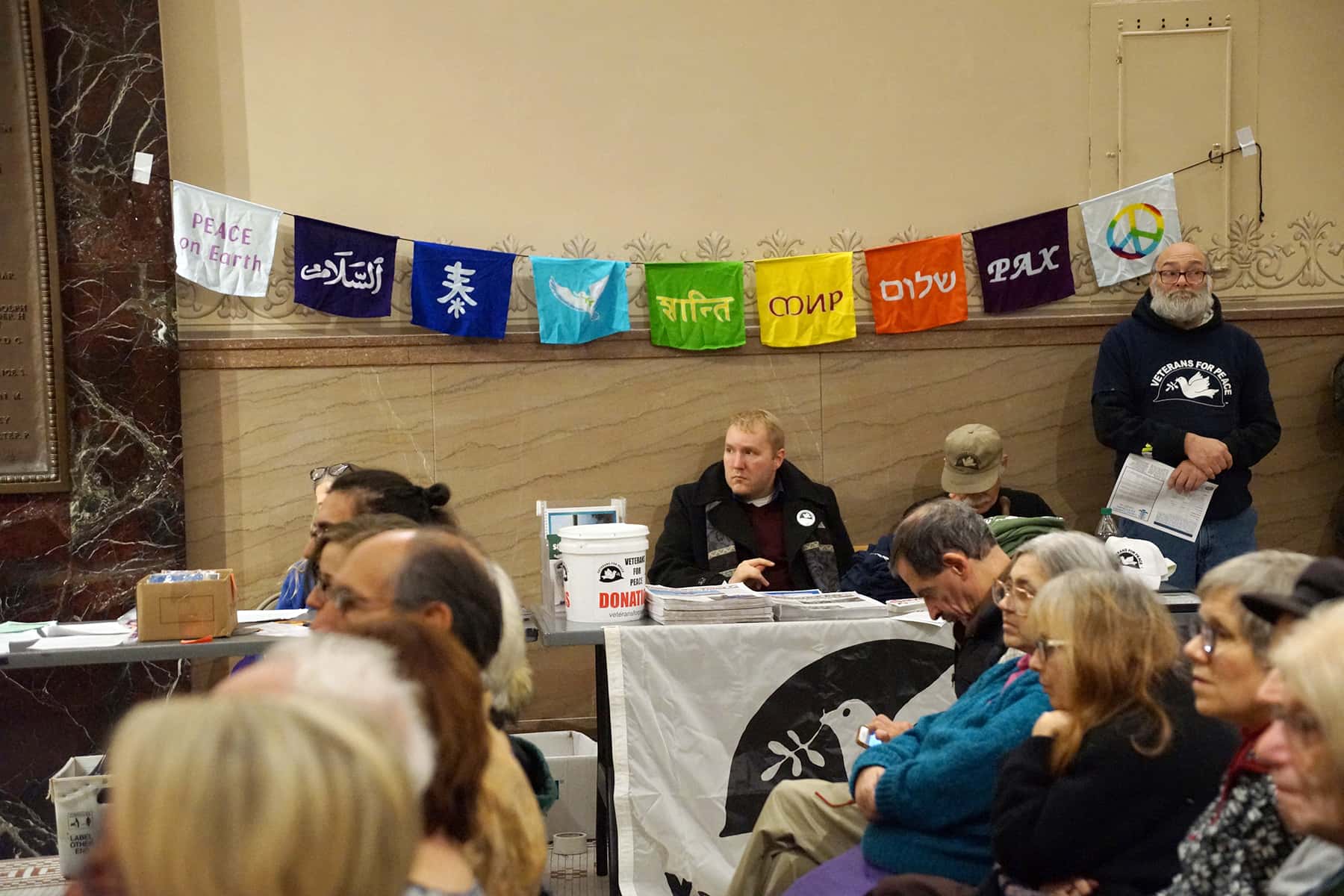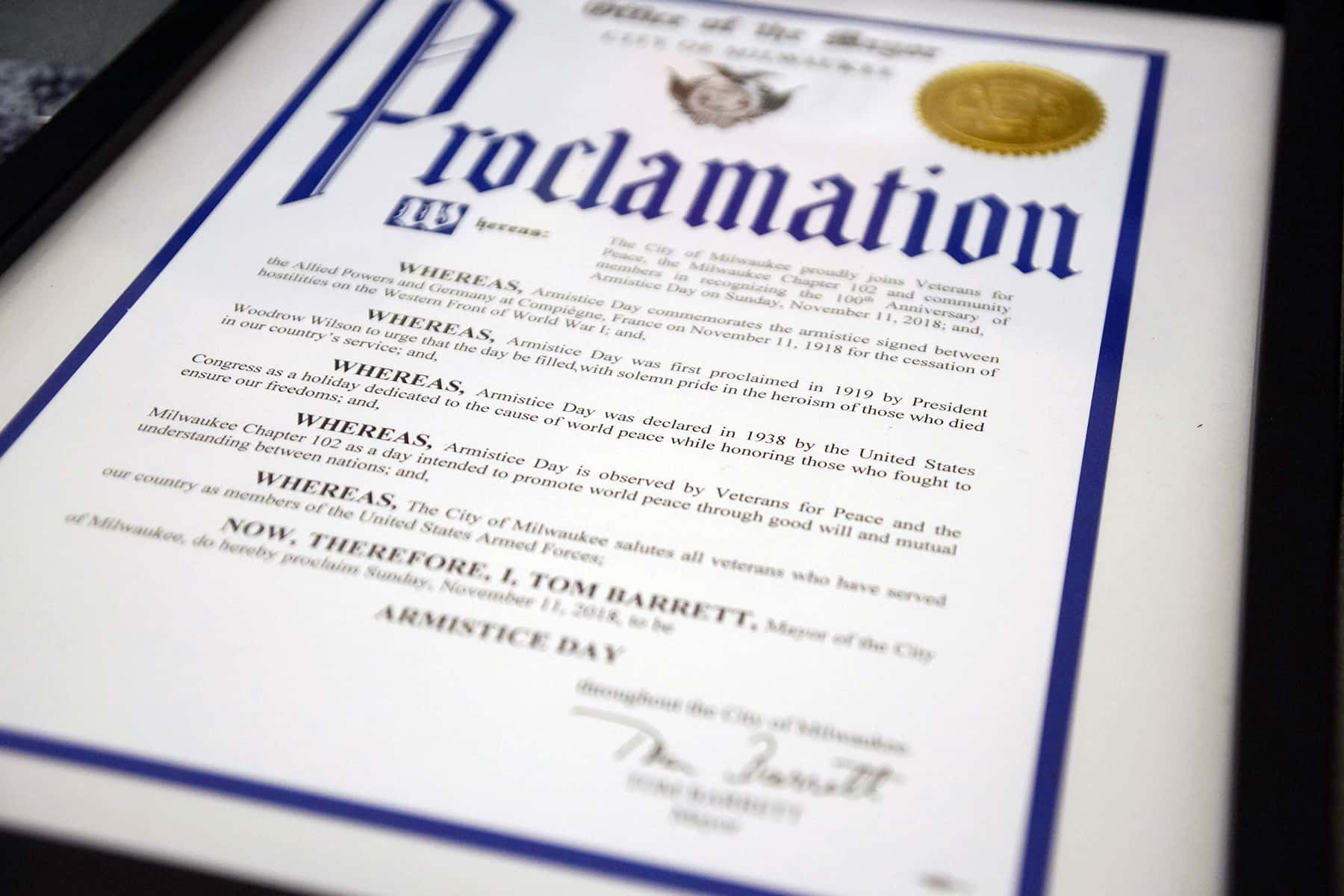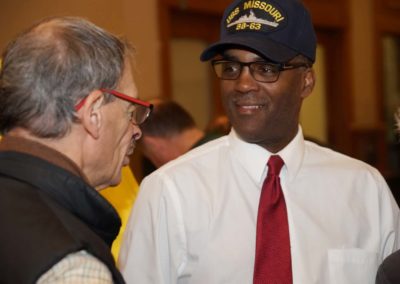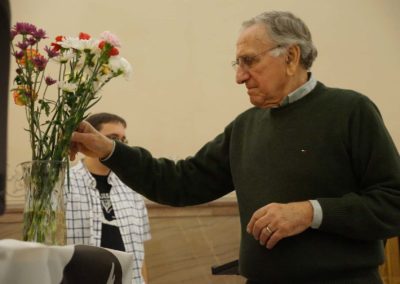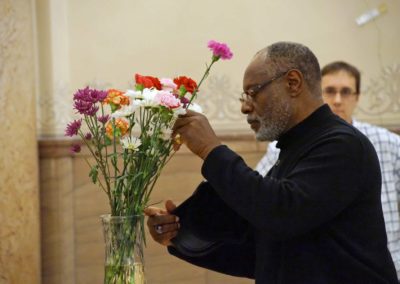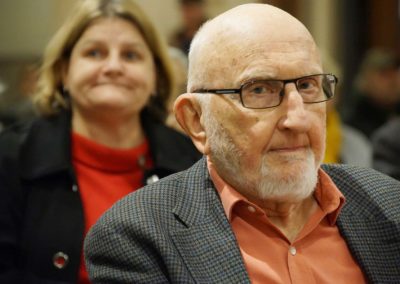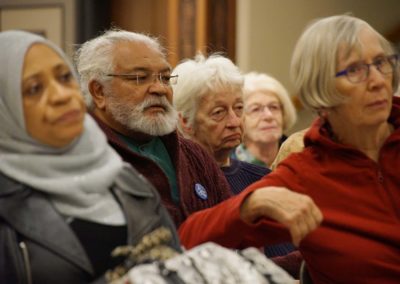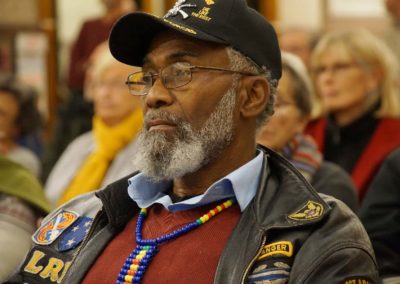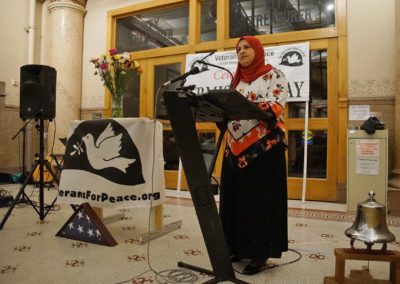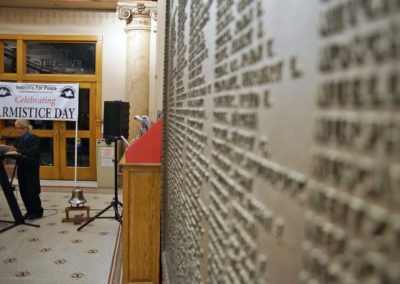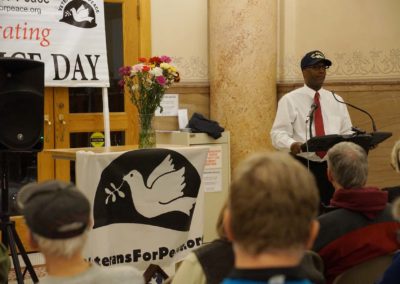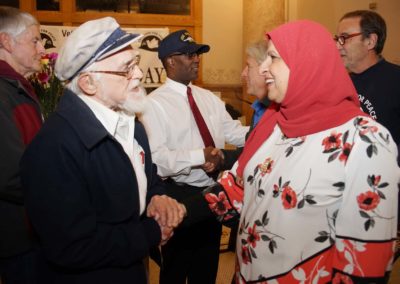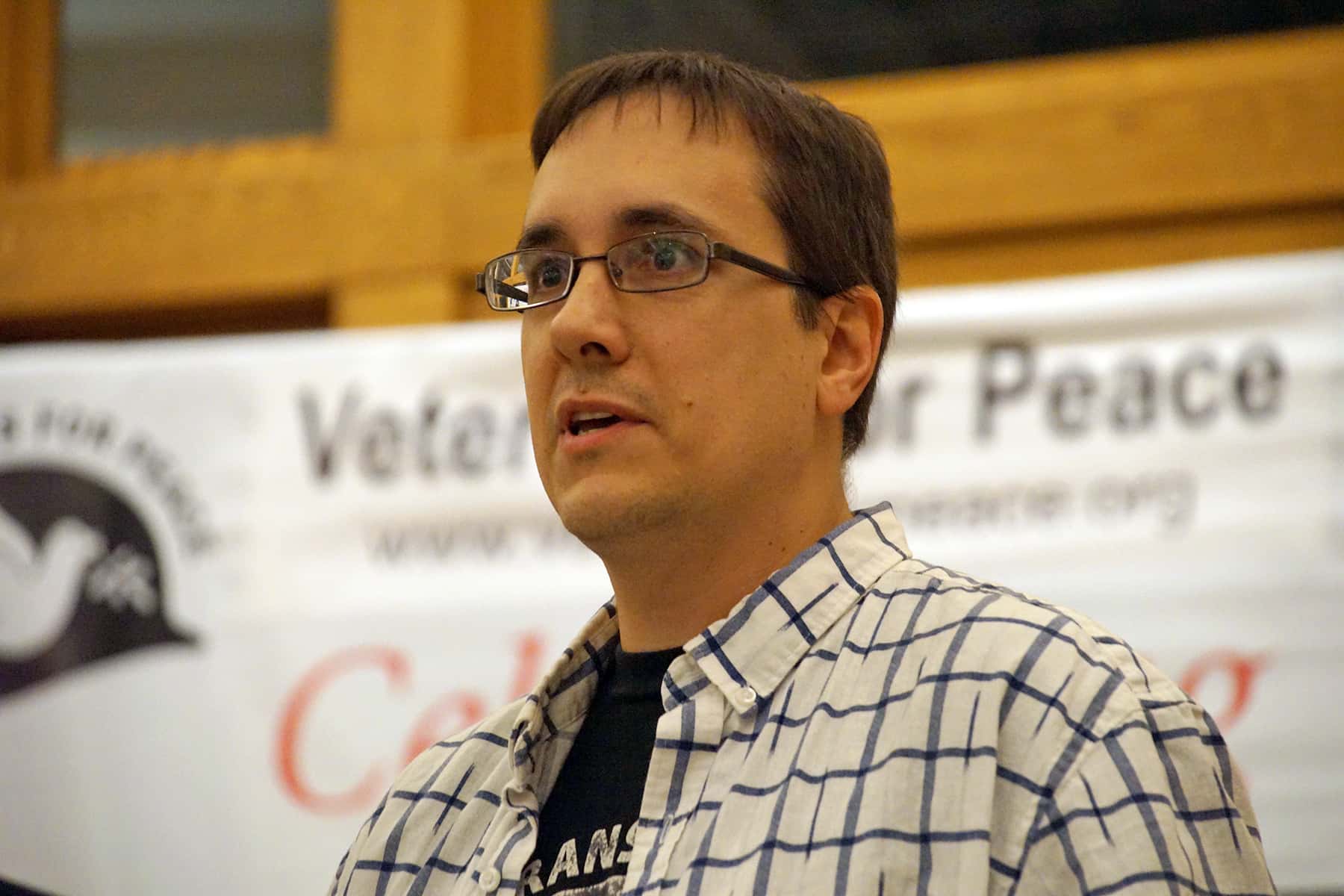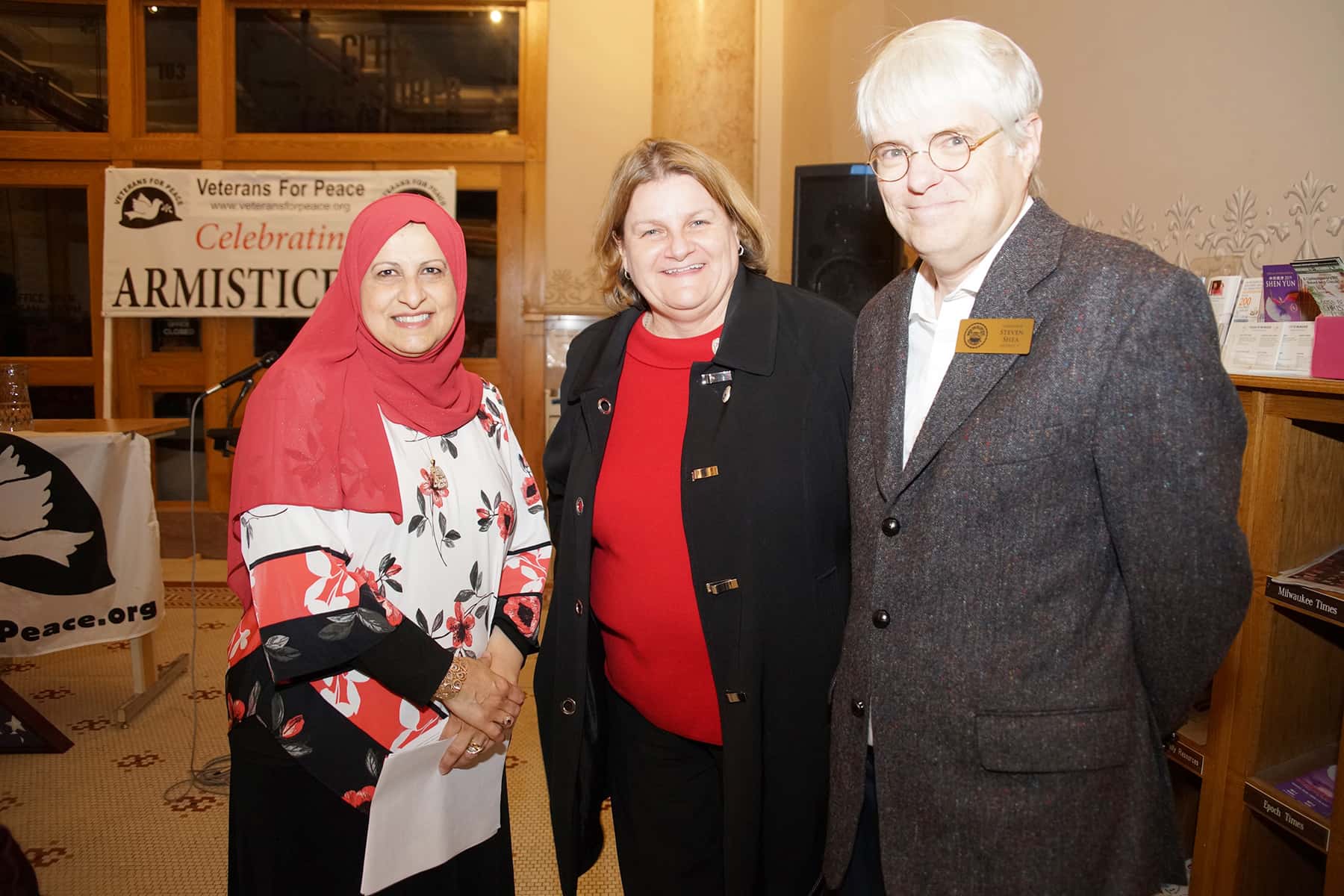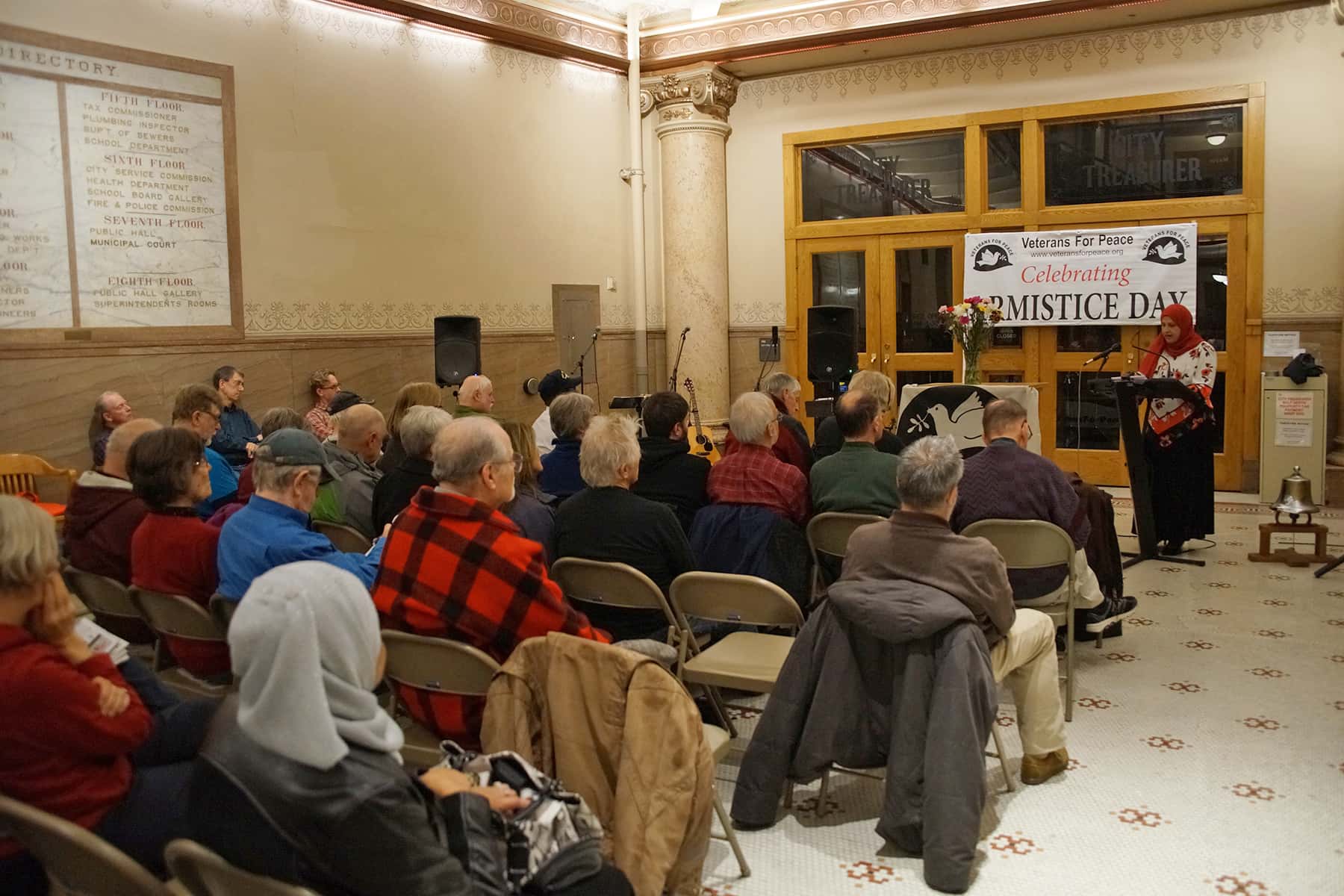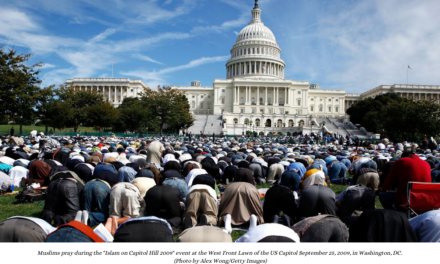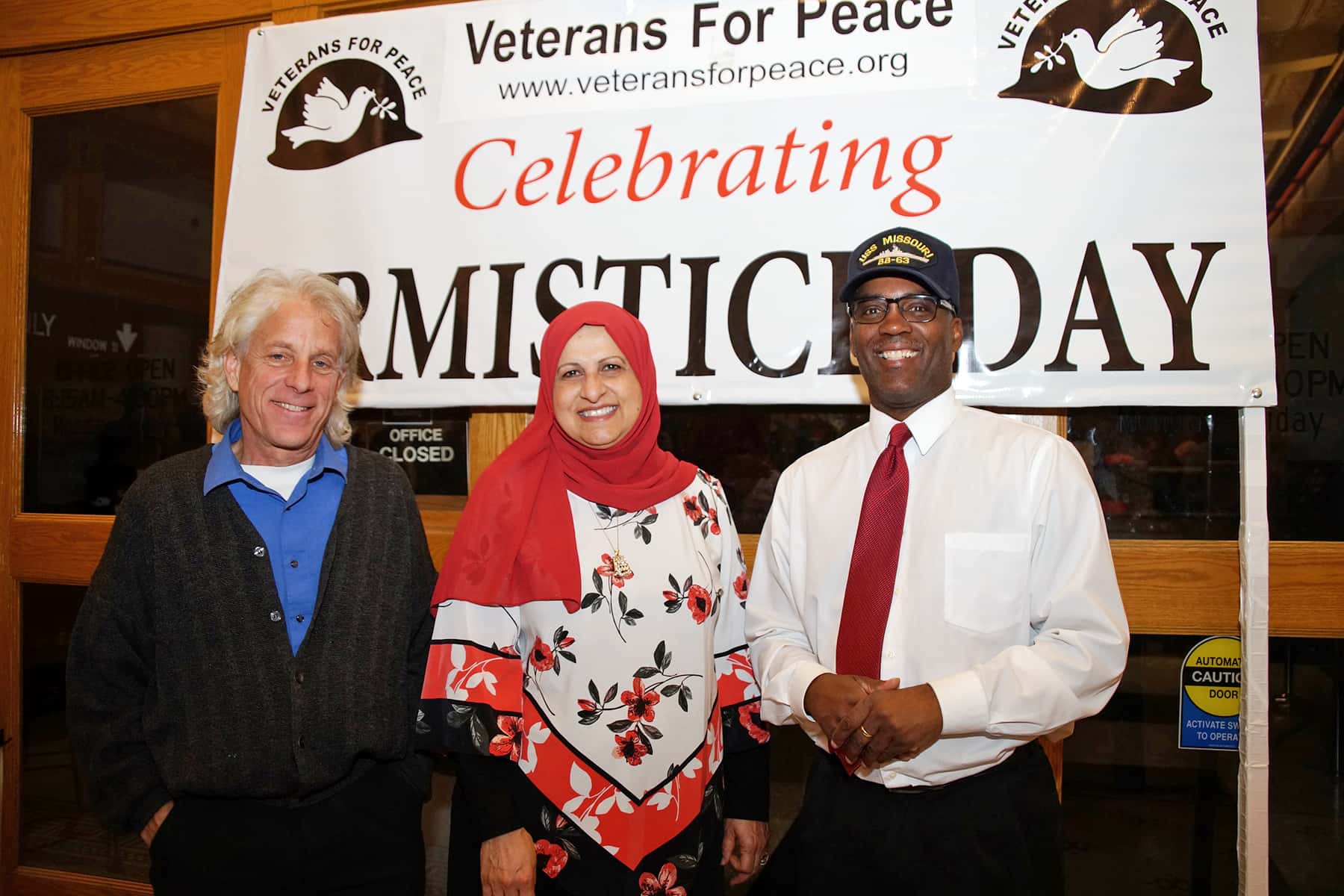
The 100th anniversary of Armistice Day, which celebrated the end of World War I, was observed with a special program at Milwaukee City Hall on November 11. The event was a reminder of the day, that now honors veterans, was originally established as a day to promote world peace.
More than one hundred people gathered on the Centennial anniversary that nearly eliminated a generation from Europe. Referred to as the Great War at the beginning of the Twentieth Century, World War I was thought to be the “war to end all wars.” It formally concluded on the 11th hour on the 11th day of the 11th month of 1918. Twenty million soldiers and civilians were killed during the conflict, and almost an equal number wounded.
“Since then, in many instances it has become a celebration of militarism, honoring war rather than the veterans who served,” said Paul Moriarity, President of Milwaukee Veterans for Peace. “We have sponsored our event annually for 10 years to celebrate and promote peace, not war.”
Featured speakers included Janan Najeeb, president of the Milwaukee Muslim Women’s Coalition (“Islamophobia: The Next Chapter in US History of Xenophobia”); John LaForge, co-director of Nukewatch (“The Growing Dangers of the New Nuclear Arms Race”); and Reggie Jackson, head griot of America’s Black Holocaust Museum (“The War on Poor People”).
The Congress of the United States designated November 11 as Armistice Day in a resolution calling for “exercises designed to perpetuate peace through good will and mutual understanding,” and later added that it was to be “a day dedicated to the cause of world peace.” In 1954, Congress changed the name to Veterans Day.
“Long before the Geneva Convention, Muslim soldiers insisted on the humane treatment of the captured enemy. These soldiers often referred to the Qur’an and hadith – the traditions of Prophet Muhammad – demanding that German prisoners of war be dealt with dignity and not forced to beg for their food. Other sources depict care for the injured enemy and are corroborated by the testimonies of surprised French, Belgian, and Canadian officers writing home,” said Najeeb. “Hundreds of thousands of Muslims died protecting Britain and France, the same countries that then imposed brutal colonialist rule and ravaged the resources of those under their control.”
Even after an armistice was reached and before it came into force at the 11th hour of the 11th day of the 11th month of 1918, death continued and highlighted the futility of a conflict. Historian Joseph Persico estimated the total dead, wounded, and missing on all sides on the final day of November 11 was 10,900.
“The way we use our military impacts poor people, not just here in America but around the world. My great grandfather served in World War I, the so-called ‘war to end all wars.’ From that conflict 38 million people died. Another 65 million people died in World War II. And now, every day people are dying in wars around the world,” said Jackson, who served six years in the United States Navy, most of that time aboard the Iowa-class battleship USS Missouri. “We create we sell more weapons than any nation in history. Most of weapons being used in wars around the world were created right here in the good old USA by good old American workers, and we don’t even think about it.”
© Photo
Wisconsin Muslim Journal
